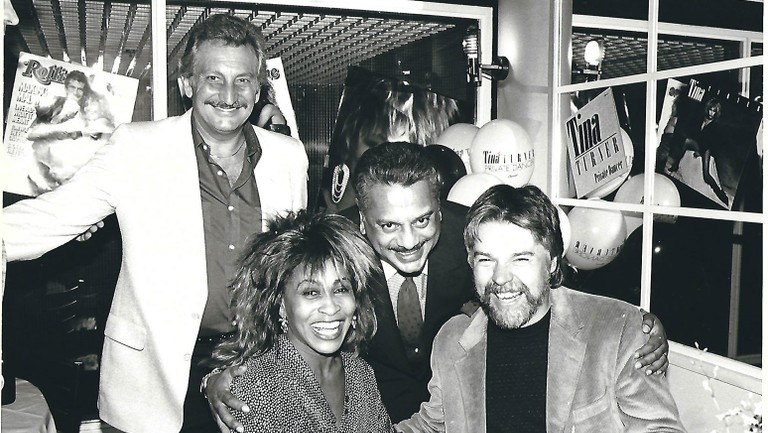As Head of EMI, he’s worked with giants like Pink Floyd and The Beatles.
By Ashima Sethi
Earlier this week, news broke that music industry giant Bhaskar Menon had passed away at his home in Beverley Hills, California. He was 86 years old. A central figure to the industry who was more or less credited for launching Pink Floyd in the United States, Menon’s decades in the business saw him working with some of music’s biggest giants. To commemorate his passing, we’ve put together a timeline of his influential career.
Menon was born on 29th May 1934 in Kerala, India. His father, KRK Menon was a civil servant who was independent India’s first finance secretary, while his mother, Saraswathi Menon, was the figure in his life who first introduced him to Indian classical music. As a child he studied at The Doon School in Dehradun, Uttarakhand, and then St. Steven’s College, before pursuing a master’s degree in Christ Church, Oxford, a school that’s a constituent college of the prestigious University of Oxford in the United Kingdom.
Menon’s career in entertainment began at EMI, a British music record and publishing company that he joined after completing his higher education. After starting his role, he was moved to EMI’s Indian subsidiary—Gramophone Company of India, where he became Chairman in 1969. In his role as the first Chairman and CEO of the company, he decided to form EMI Music Worldwide in 1978, bringing together all of EMI’s labels and music publishing subsets under one global management system. In total, Menon spent over 34 years working at the company in various positions, transforming it into the multi-billion dollar EMI Music Group we know today with operations in 46 countries.
In 1979, Thorn Electrical Industries and EMI formed Thorn EMI and Menon was appointed Director of the newly-merged company, and he remained Chairman of EMI Music Worldwide and Director of Thorn EMI until he retired from the group in 1990. During his illustrious career, Menon worked with many celebrated artists including The Rolling Stones, Queen, Natalie Cole, Duran Duran, Ravi Shankar, Heart, and Diana Ross. However, he was most recognised for his work to successfully launch Brit-band Pink Floyd in the United States.
In the 1970s, the label had experienced a massive hit after the sudden breakup of The Beatles, arguably the company’s most valuable act, but in 1971, Menon was asked to lead Capitol Records (a label where EMI had majority stake) and he decided to run a largescale campaign around the release of Pink Floyd’s album The Dark Side of the Moon. This struck many as a controversial decision, as the band had failed to break through to audiences in the U.S. with their previous work. However, Menon saw the potential and never let up, his efforts paid off as the album has been certified 15 times Platinum.
In a documentary titled The Making of the Dark Side of the Moon, the band’s drummer Nick Mason had this to say about Menon: “The story in America was a disaster, in that we really hadn’t sold records. And so they brought in a man called Bhaskar Menon who was absolutely terrific. He decided he was going to make this work… and he did.”
In addition to his work in music, Menon was also heavily involved in promoting India’s film fraternity and classical musicians, including many singers. He founded the company International Media Investments in 1995, after which he invested in several entertainment-related businesses, including Indian broadcast service, NDTV. He was also actively involved with EMI Films Inc., a company that produced films such as Murder on the Orient Express (1974) and A Passage to India (1984), both of which received critical acclaim, winning several Oscars.
Lucian Grainge, the CEO at Universal, which inherited EMI and it’s subsets, had this to say about Menon’s passing: “Determined to achieve excellence, Menon built EMI into a music powerhouse and one of our most iconic, global institutions. Music and the world have lost a special one. Our hearts go out to his loved ones.”
Featured image: www.billboard.com






